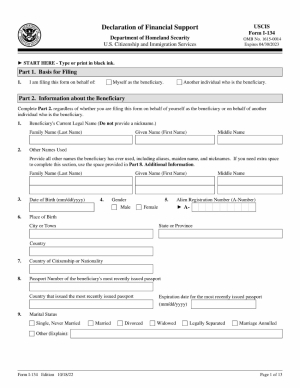It’s vital to know all the obligations of an I-134 supporter before you sign Form I-134.
While completing a Declaration of Financial Support for foreign visitors, you're promising the United States government that the visitors you're sponsoring won't need any public assistance while in the country. If they do apply for public assistance, you'll have to repay this amount to the government. However, this obligation is only for a limited time, and it's pretty unlikely that you'll need to pay.
I-134 Enforcement is Unlikely
Enforcing Form I-134 is very unlikely, and it's considered an unenforceable doc by the majority of lawyers. The reasons why enforcement of I-134 is difficult to include the following:
First of all, non-immigrant visitors aren't eligible for most public assistance provided by the government, and they will be denied if they even apply.
Secondly, I-134 support is only for a short time during the visitor's stay.
Lastly, government agencies don't have the time or resources to enforce the terms of an I-134 declaration.
When Does I-134 Obligation End?
Once the non-immigrant visitor departs from the United States and hasn't used government-sponsored public assistance, your I-134 obligation ends. For example, if the non-immigrant is a K-1 or K-2 visa holder, the obligation related to Form I-134 ends when the petitioner submits Form I-864 or the foreign national leaves the United States.
Form I-864 is similar to I-134, and it's an affidavit of support that the petitioner submits on behalf of the intending immigrant when they adjust their status to become a permanent resident (green card holder).
Overall, it's uncommon for the government to enforce their rights under Form I-134. However, it's important to remember that if you've signed I-134, you have a moral obligation to support non-immigrant visitors if they require assistance.
Last Updated 06/06/23 09:49:15AM


 Form I-134 | Affidavit of Support
Form I-134 | Affidavit of Support